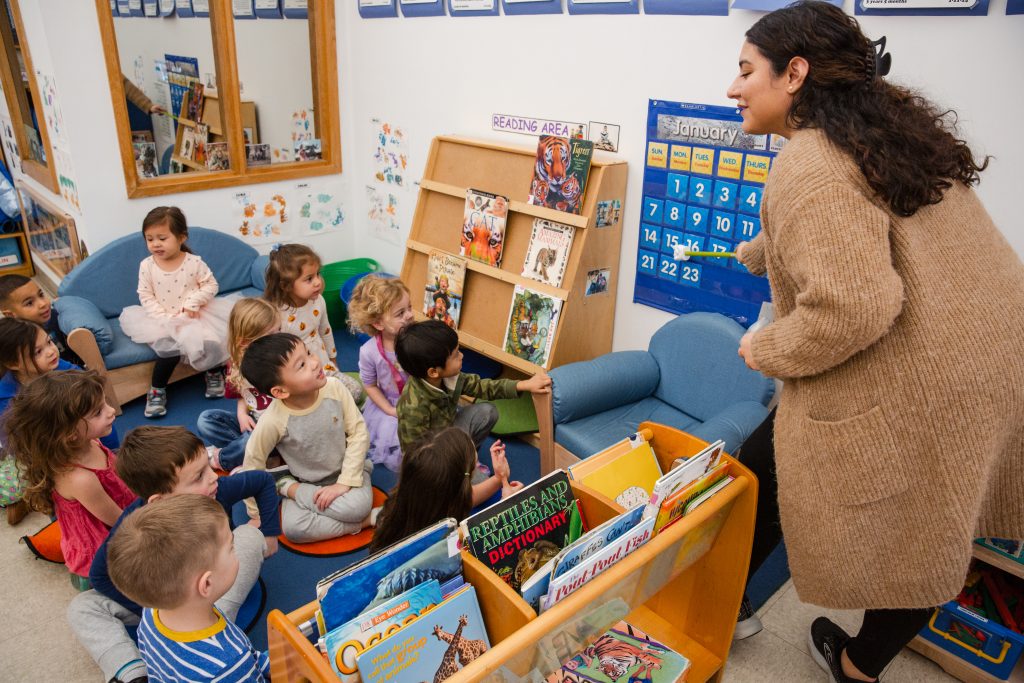Early childhood educators are accustomed to the perception that their work is joyous and therefore laid-back: “I’m the ‘fun daycare lady,’” as one group family provider put it at a recent Early Childhood Career Development Center event.
So it was fitting that Institute career advisors from several regions hosted a Career Conversation on the topic of professionalism in early childhood. What does it look like and feel like to be “professional” in an early learning environment? How can early care and learning providers strengthen their sense of professionalism in the field?
Educators and providers who attended the conversation on Zoom had the opportunity to reflect on their own perceptions of what professionalism looks like in early childhood. They also learned about what the National Association for the Education of Young Children (NAEYC) defines as the “six key competencies for professionalism as an early childhood educator.”
When Christine Duffy-Webb, the Career Development Center’s regional coordinator for the Southern Tier, invited participants to define professionalism at the start of the conversation, responses included “respecting yourself, your profession and your co-workers” and “being an example of best practice.”
Duffy-Webb then introduced “four keys to your professional identity”:
- Be involved in the field.
- Be a continuous and collaborative learner.
- Join professional organizations – for example, the New York Association for the Education of Young Children or the National Association for Family Child Care.
- Abide by NAEYC’s Code of Ethics.
“Understanding our profession’s code of ethics is vital,” said Duffy-Webb. “When I was making decisions, I would look at the NAEYC principles and ask, what’s the right thing to do? They can help guide us and make decisions in challenging moments.”
In “Becoming Your Best: Building Professional Competencies,” NAEYC recommends a set of guidelines for early childhood professionals. Among other suggestions, it encourages educators to “be passionate.”
“From the time I was 5 and I lined up all my stuffed animals in a circle and pretended to read to them, I have always been passionate about wanting to be a teacher,” noted Charla Smith, a career advisor in the Western New York region. “Being passionate about what you do and why you do it is a huge professional competency. Understand what motivates you to teach and why you’re doing it.”
The conversation concluded with practical tips and resources for participants to deepen their understanding of professionalism.
The Institute’s Career Development Center hosts virtual Career Conversations throughout the year to inform and inspire early childhood professionals.
